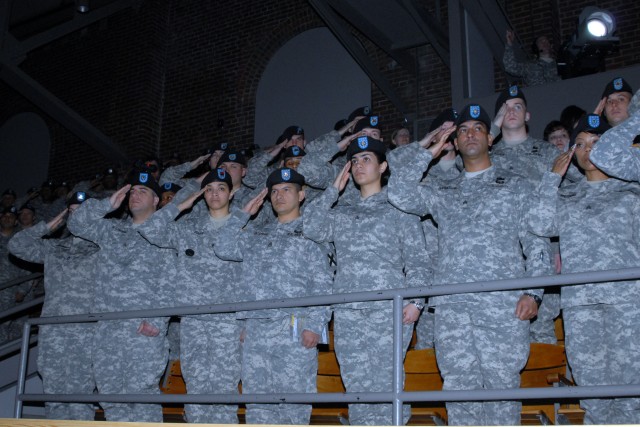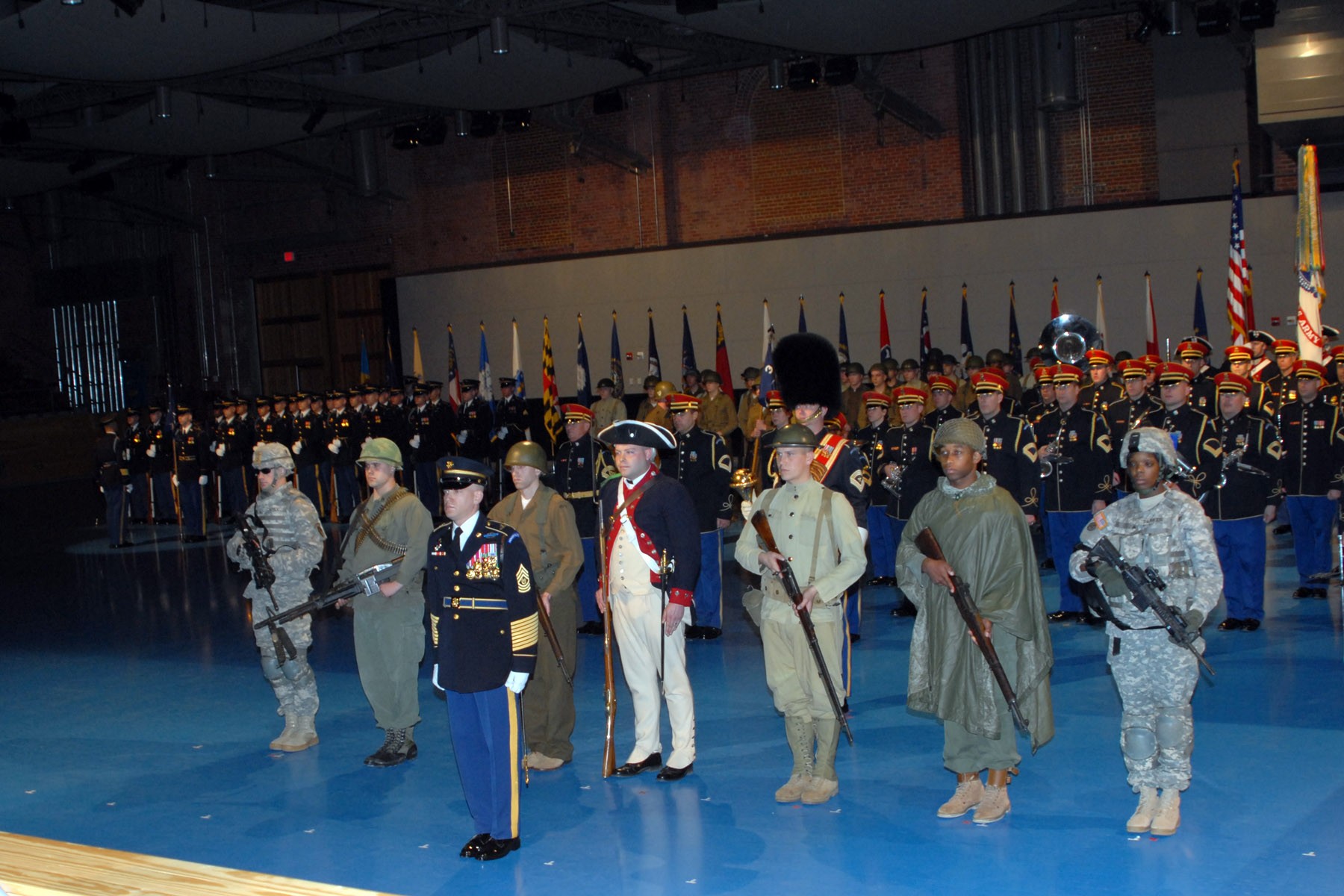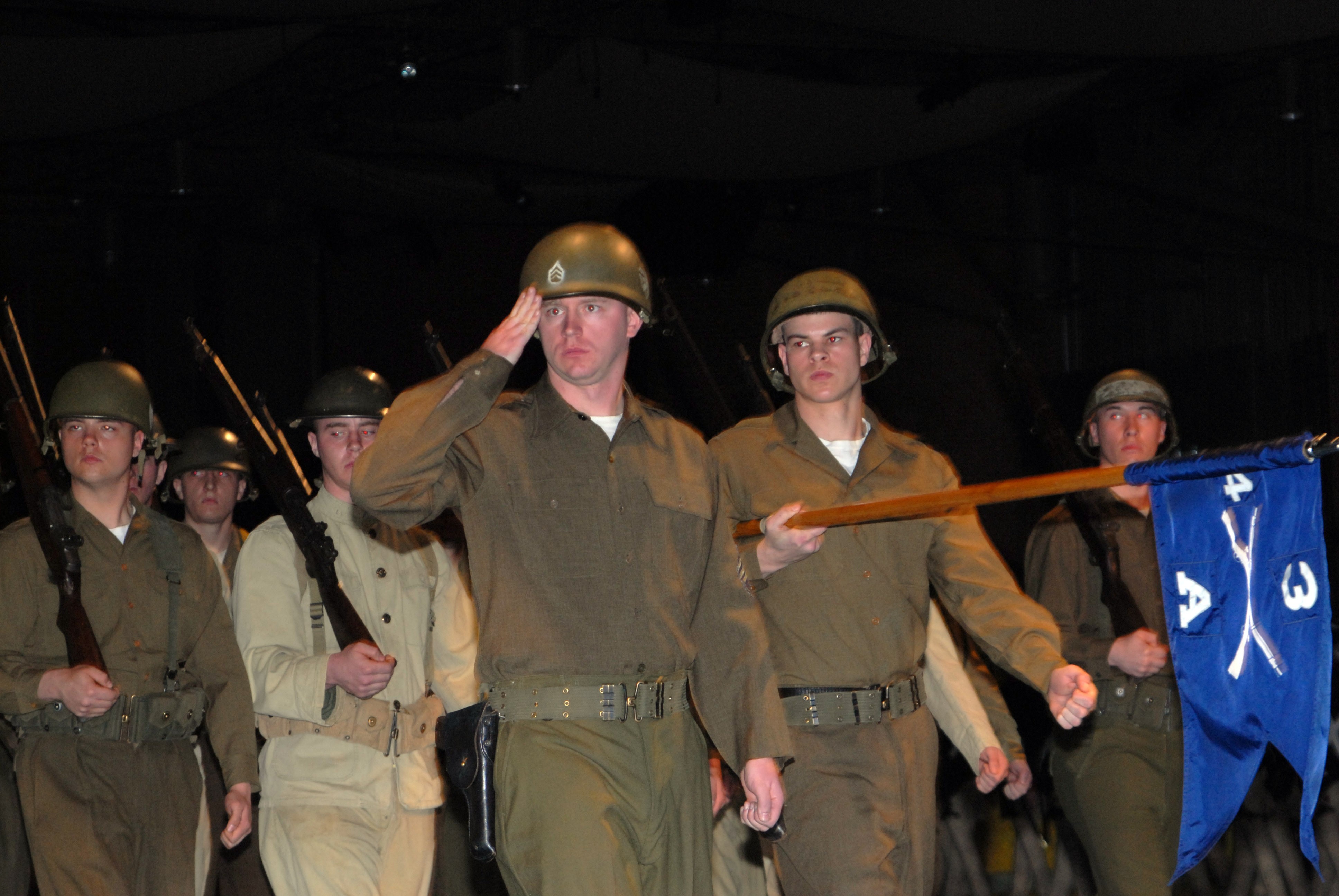Soldiers of the 3rd U.S. Infantry Regiment (The Old Guard) marched in a ceremony this month to honor the Year of the NCO. The ceremony, a review hosted by Sgt. Maj. of the Army Kenneth O. Preston, was designed to showcase the contributions of noncommissioned officers in the U.S. Army.
During the review, Soldiers marched in various different uniforms to highlight the history of the NCO corps. Preston inducted 29 newly minted NCOs into the corps, and remarks were given by Preston, General George W. Casey, Jr., the Chief of Staff of the Army, and the Honorable Pete Geren, Secretary of the Army.
"There is little doubt that they (NCOs) are the backbone of the Army," said Geren. "Today we honor that backbone of the United States Army, and their families."
In October of 2008, Geren declared 2009 to be the Year of the NCO. This is fitting, said Sgt. 1st Class William Cramer, the regiment's Chemical Biological Radiological and Nuclear NCOIC. "NCOs have been sharing a larger portion of the leadership burden for quite a while," he said in an interview. "We're not the decision-makers, but we're the ones who actually implement the decisions, and make sure that the work is completed to standard.
"The two biggest things that the NCO contributes to the success of the Army is training Soldiers and enforcing the standards," said Cramer. "If we did not have that competency, this Army would not be half as successful as it is now."
"Without a doubt, the noncommissioned officer corps is a national asset," said Casey during his remarks. "When I go around the world and I talk to different armies, it becomes very plain: our sergeants are the envy of the world, and as a nation, we should take special pride in that."
As the nation's highest ranking NCO, Preston explained what it means to be an NCO, "It's about teaching from experience, and teaching your Soldiers everything you gained from your experiences, so that they too can follow in your footsteps," he said.
"The Army today is the best army in the world today because we had senior noncommissioned officers who continued to teach from experience. We have great young Soldiers today who want to continue to covet what it means to be a noncommissioned officer.
In his remarks, Geren explained the value of the NCO to the Army. "Our NCOs lead. They lead the way on the battlefield, in education, in training, in discipline," he said. "Our noncommissioned officers share their strength in character with every Soldier they lead, with every officer they support, and every civilian that they serve."
"The two biggest things that the NCO contributes to the success of the Army is training Soldiers and enforcing the standards," said Cramer. "If we did not have that competency, this Army would not be half as successful as it is now."






Social Sharing